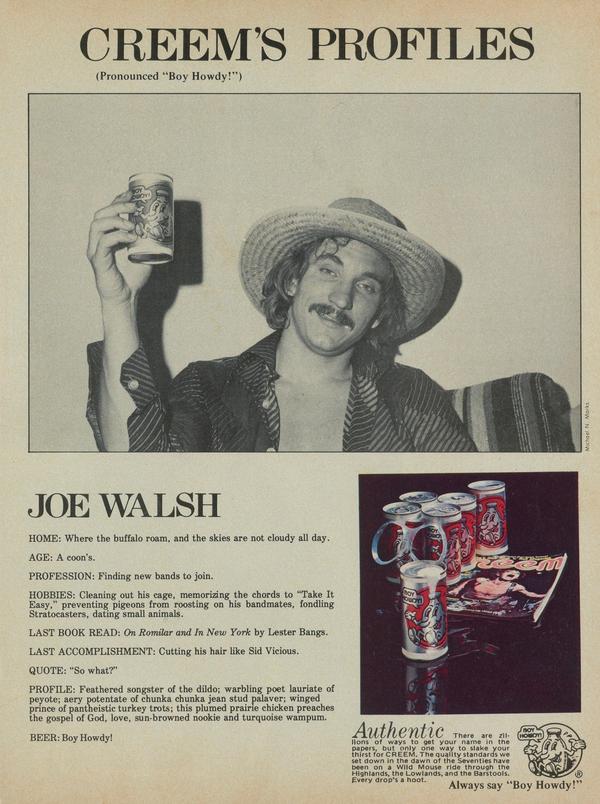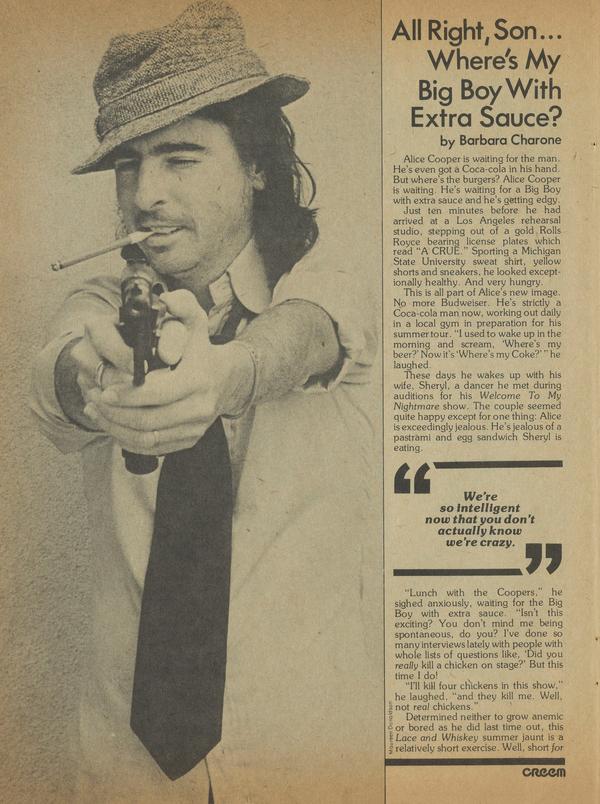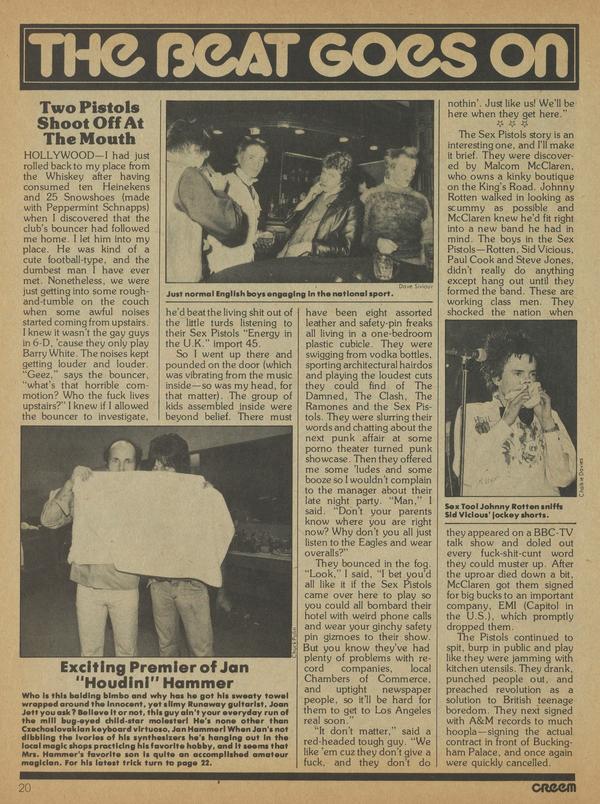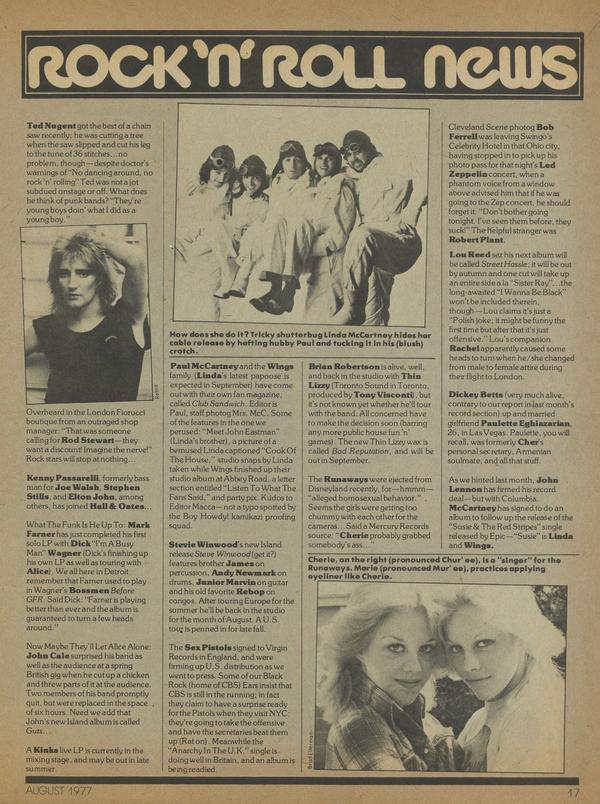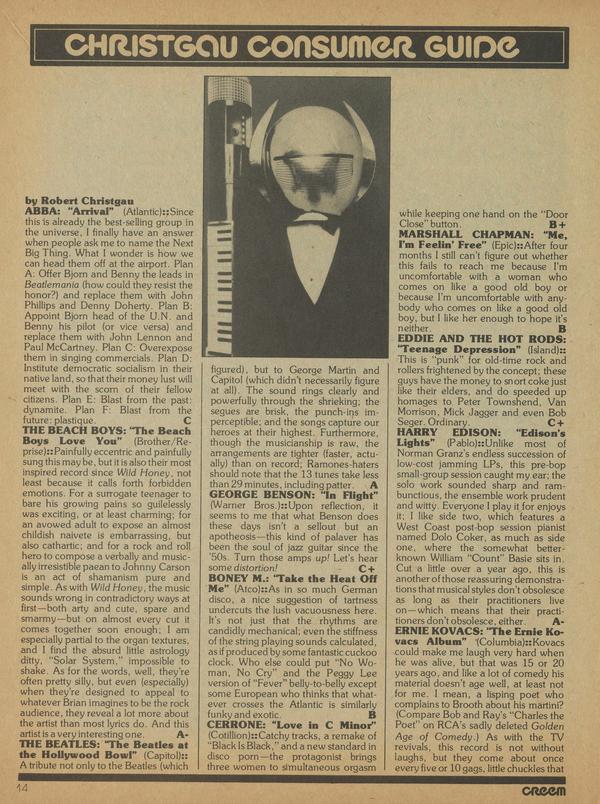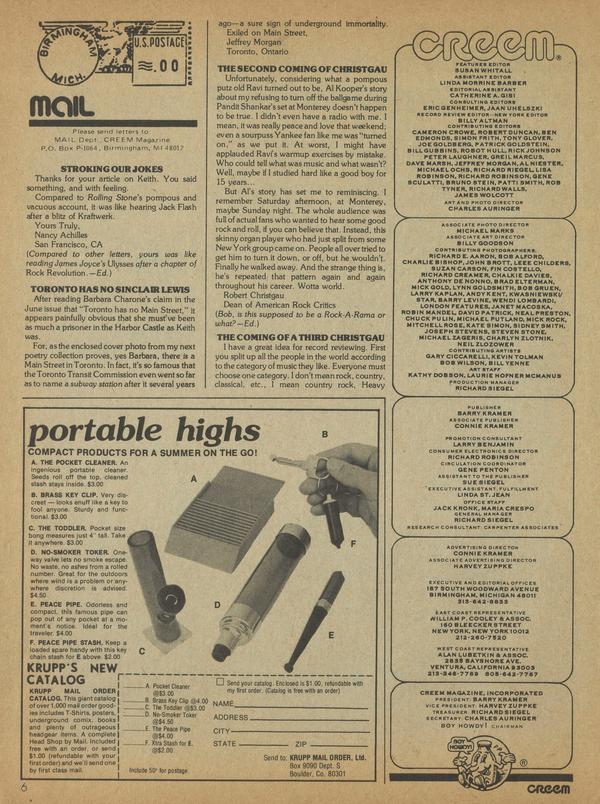Creemedia
Monty Python's Neil Innes: How Sweet To Be An Idiot
There's no tradition of rock humour in Britain (there's not much of one in America come to that—but we haven't even got a National Lampoon).
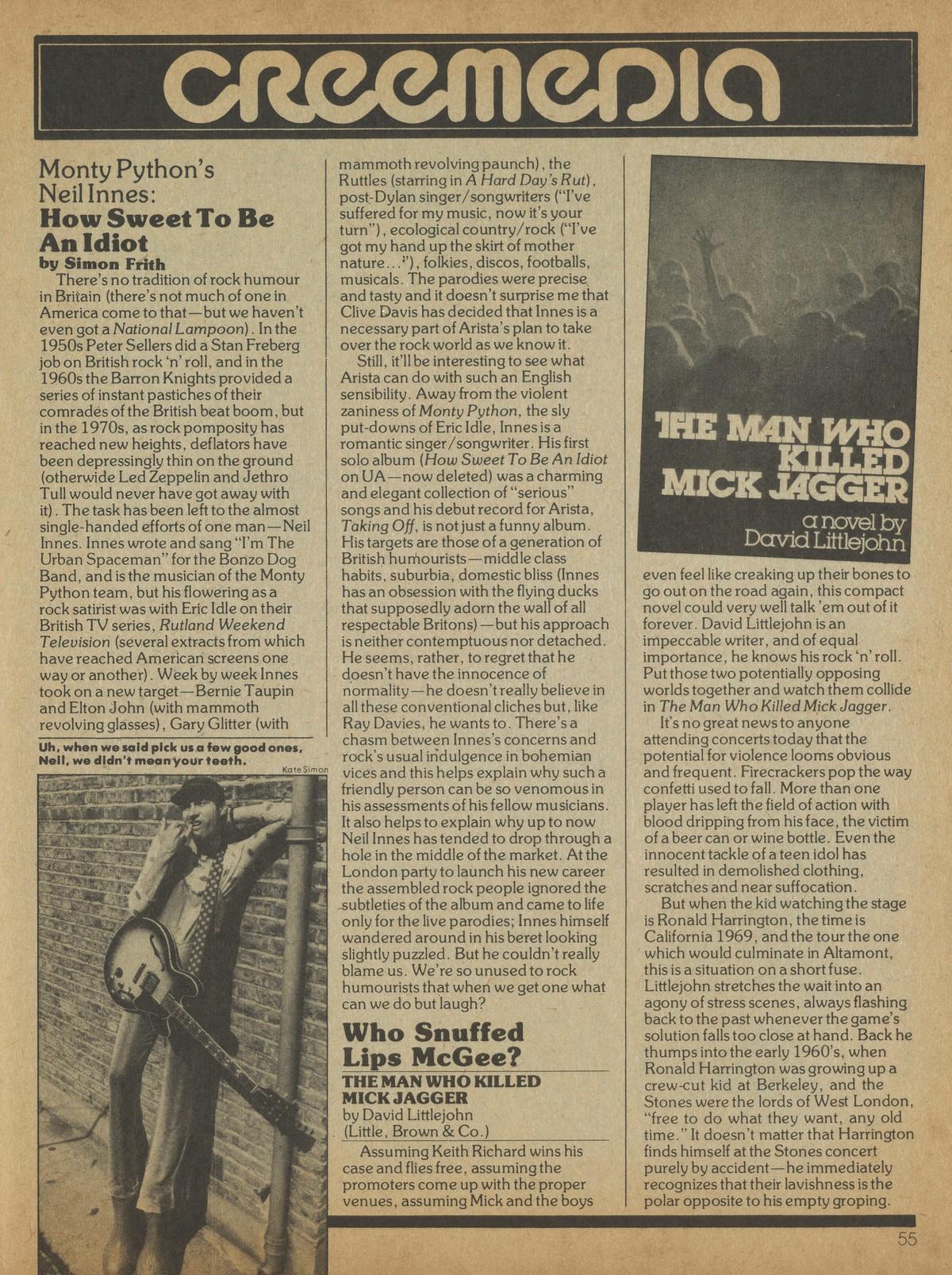

There's no tradition of rock humour in Britain (there's not much of one in America come to that—but we haven't even got a National Lampoon). In the 1950s Peter Sellers did a Stan Freberg job on British rock 'n' roll, and in the 1960s the Barron Knights provided a series of instant pastiches of their comrades of the British beat boom, but in the 1970s, as rock pomposity has reached new heights, deflators have been depressingly thin on the ground (otherwide Led Zeppelin and Jethro Tull would never have got away with it). The task has been left to the almost single-handed efforts of one man—Neil Innes. Innes wrote and sang "I'm The Urban Spaceman" for the Bonzo Dog Band, and is the musician of the Monty Python team, but his flowering as a rock satirist was with Eric Idle on their British TV series, Rutland Weekend Television (several extracts from which have reached American screens one way or another). Week by week Innes took on a new target—Bernie Taupin and Elton John (with mammoth revolving glasses), Gary Glitter (with mammoth revolving paunch), the Ruttles (starring in A Hard Day's Rut), post-Dylan singer/songwriters ("I've suffered for my music, now it's your turn"), ecological country/rock ("I've got my hand up the skirt of mother nature.. .*'), folkies, discos, footballs, musicals. The parodies were precise, and tasty and it doesn't surprise me that Clive Davis has decided that Innes is a necessary part of Arista's plan to take over the rock world as we know it.
Still, it'll be interesting to see what Arista can do with such an English sensibility. Away from the violent zaniness of Monty Python, the sly put-downs of Eric Idle, Innes is a romantic singer/songwriter. His first solo album (How Sweet To Be An Idiot on UA—now deleted) was a charming and elegant collection of "serious" songs and his debut record for Arista, Taking Off, is not just a funny album. His targets are those of a generation of British hurhourists—middle class habits, suburbia, domestic bliss (Innes has an obsession with the flying ducks that supposedly adorn the wall of all respectable Britons) —but his approach is neither contemptuous nor detached. He seems, rather, to regret that he doesn't have the innocence of normality—he doesn't really believe in all these conventional cliches but, like Ray Davies* he wants to. There's a chasm between Innes's concerns and rock's usual indulgence in bohemian vices and this helps explain why such a friendly person can be so venomous in his assessments of his fellow musicians. It also helps to explain why up to now Neil Innes has tended to drop through a hole in the middle of the market. At the London party to launch his new career the assembled rock people ignored the -subtleties of the album and came to life only for the live parodies; Innes himself wandered around in his beret looking slightly puzzled. But he couldn't really blame us. We're so unused to rock humourists that when we get one what can we do but laugh?


